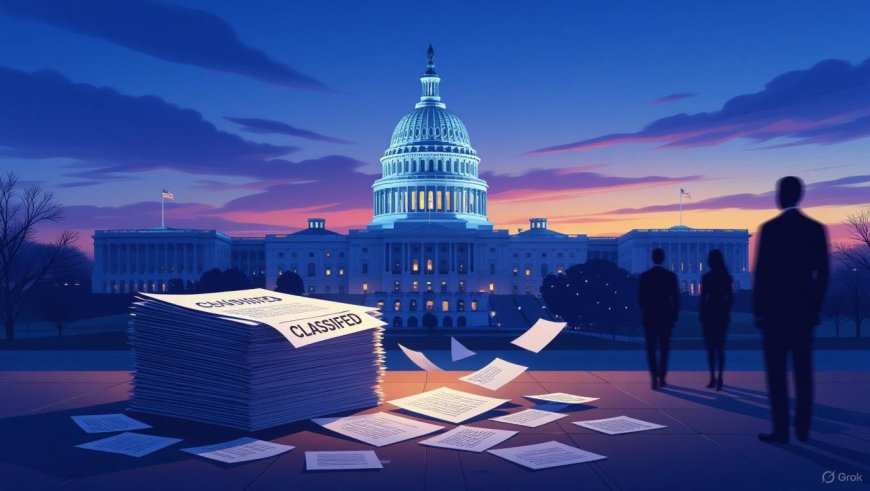House Panel’s New Epstein File Releases Ignite Renewed Controversy
The U.S. House Oversight Committee has released new Epstein files, sparking renewed controversy over accountability, redacted names, and bipartisan tensions.

The U.S. House Oversight Committee has released a new batch of documents tied to Jeffrey Epstein’s vast network, rekindling public outrage and fueling debates about accountability, transparency, and justice. The files, spanning correspondence, visitor records, and financial logs, shed fresh light on how Epstein’s operations intersected with powerful political, financial, and cultural figures.
The panel, chaired by Rep. Caroline Hughes (D-MA), described the latest disclosures as “critical to understanding systemic failures in oversight, prosecution, and institutional protection that allowed Epstein’s crimes to persist unchecked for decades.”
What the Newly Released Files Contain
Unlike previous court-ordered disclosures, these House-panel releases include internal memos, sealed testimonies, and handwritten notes that had not been part of earlier public archives. According to staffers, the documents outline:
-
Flight logs and visitor entries to Epstein’s New York townhouse and private island between 2001 and 2017.
-
Financial trails suggesting layers of shell companies and offshore accounts designed to obscure money flows.
-
Communications with legal advisors that highlight repeated efforts to negotiate immunity deals with prosecutors.
Several names of high-profile individuals appeared once again, though the committee emphasized that “mention in records is not evidence of criminal wrongdoing.” Still, the reemergence of prominent politicians, business leaders, and entertainers has ensured the controversy remains at the forefront of public discourse.
Why This Matters Now
The release comes at a time of rising public skepticism about institutions, as well as heightened media interest in past failures of law enforcement. Analysts say the House panel is attempting to restore confidence by showing a willingness to unseal sensitive documents.
“This is not simply about one man,” noted Professor Linda Carver, a legal scholar at Georgetown University. “It is about a system that permitted someone with money, influence, and connections to operate above the law. These documents underline how deep and long-lasting that failure was.”
According to Reuters, the Oversight Committee is expected to hold a follow-up hearing later this month, with testimony from former federal prosecutors and Department of Justice officials.
Bipartisan Tensions Rise
The release has also deepened partisan divides. Democrats argue the files expose failures in federal oversight during both Republican and Democratic administrations. Republicans, meanwhile, accuse the committee of selective disclosure, claiming certain politically inconvenient names are still being withheld.
Rep. Thomas Keller (R-TX), a ranking committee member, issued a statement alleging the panel “continues to play politics with tragedy.” He called for the full unredacted release of all Epstein-related documents.
Meanwhile, survivors of Epstein’s abuse have welcomed the release but urged Congress to go further. Advocacy groups argue that piecemeal disclosures prolong trauma while protecting elites.
Public Reaction and Cultural Impact
The release of fresh files has already sparked intense discussion across television panels, online forums, and social platforms. While some focus on potential new revelations, others emphasize the repetitive cycle of partial disclosures that raise more questions than answers.
“Every time a new batch of files comes out, we see the same names, the same patterns, and the same lack of accountability,” said journalist Maya Lopez, who has followed the case for over a decade.
Major media outlets, including The New York Times, have highlighted how the documents reveal missed opportunities by federal prosecutors, especially during Epstein’s 2008 plea deal in Florida — widely criticized as overly lenient.
Looking Ahead
The Oversight Committee has signaled that more files may be released before the end of the year. Whether those releases will include unredacted records remains uncertain.
For now, the controversy ensures that Epstein’s legacy — and the questions surrounding who enabled him — will remain in the public eye. The disclosures serve as both a reminder of systemic failure and a test of whether political institutions can finally deliver full accountability.


















































